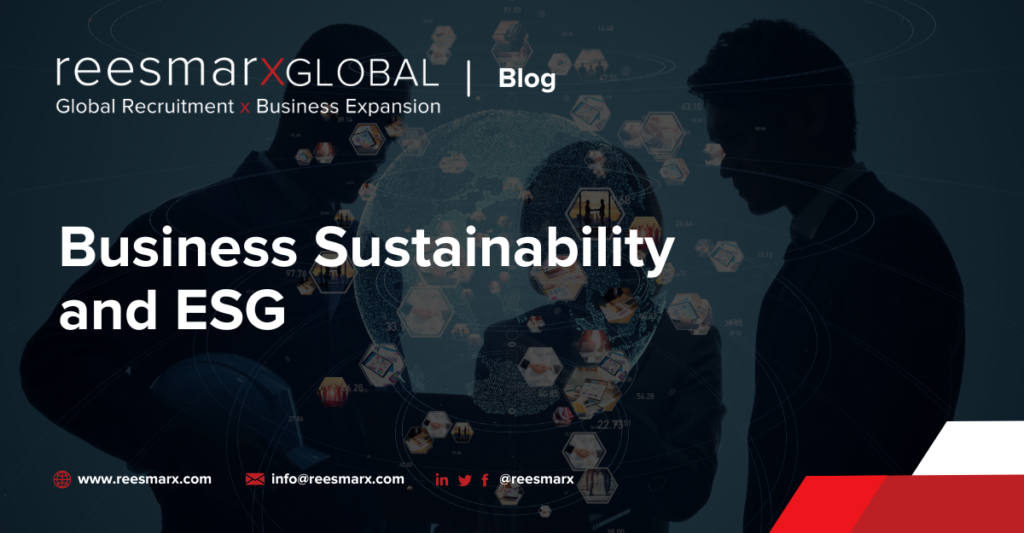As environmental risks and societal concerns continue to rise, corporate sustainability and ESG has been at the forefront of smart business investment opportunities—notably for those looking to grow their business on a global scale.
What is Corporate Sustainability and ESG?
Sustainable businesses are those that can develop a business model centered around their commitment to doing business without having any negative impacts on the environment, the local community, or society as a whole. By making an organization more sustainable, businesses can ultimately increase revenue and boost their bottom line.
Coinciding with corporate sustainability, ESG (environmental, social and governance investing, otherwise known as “sustainable investing”) is an assessment of a business’ overall conscientiousness for social and environmental issues. An organizations ESG rating is a measurement of its long-term environmental, social, and governance risks involving factors such as energy efficiency, employee safety, and board independence. Since each of these aspects come with financial implications, a business’ ESG rating is an integral part of how business investors decide whether or not to invest in an organization.
How Can Implementing Sustainability Efforts and ESG Increase Business Growth?
Studies have shown that good sustainability and sustainable investment practices can positively influence operational and stock price performance. By incorporating ESG factors into their long-term strategic plan, businesses can provide investors a more cohesive image of their prospective value.
With help from investors, an organization’s efforts to implement sustainable investing will ultimately boost their overall growth. By obtaining long-term investments, businesses are able to build their stock of physical capital and increase their capability to provide consumers with their goods and services.
Corporate sustainability and ESG implementations can help businesses build a more solidified financial landscape as well. An organization’s finances can be impacted by a variety of factors. Crisis situations such as climate change and social instability that post a viable financial risk can be better mitigated by a business by employing sustainability practices. This means that if/when crisis does occur, an ESG compliant organization is better equipped to handle such a situation over noncompliant competitors therefore increasing their market share and overall growth.
How Can Businesses Implement Sustainability Practices and Boost ESG?
- Environmental
- Manage greenhouse gas emissions
- Set renewable energy resource targets
- Reduce use of toxic chemicals
- Prioritize natural resource conservation & ethical treatment of animals
- Decrease overall waste
- Social
- Prioritize diverse inclusivity and nondiscrimination policies
- Ensure safe workplace environments
- Improve supply chain human rights policies
- Encourage volunteer work and philanthropy
- Donate a percentage of profits to local community and charity organizations
- Governance
- Disclose corporate responsibility data
- Be transparent with political contributions
- Prioritize board diversity
- Improve spending transparency
- Allow stockholders to vote on important issues
- Avoid engagement in illegal business practices
Business investors can be a great help to the growth of any organization. By striving to adhere to sustainability efforts, a business can help contribute to the resolution of climate and societal issues but boost their image to both consumers and investors. As ESG becomes a primary focus to investors, it could soon be a vital part of global business expansion and success.






